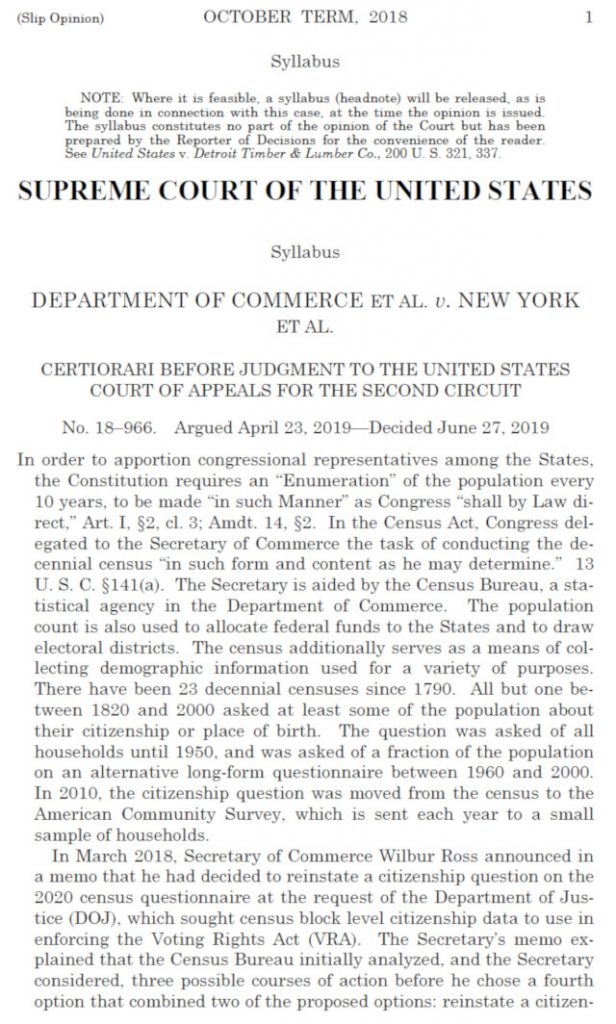Washington, DC…What follows is a a section of the Chief Justice Roberts opinion of the Court. The full opinion is in the full document below. “The Secretary of Commerce decided to reinstate a question about citizenship on the 2020 census questionnaire. A group of plaintiffs challenged that decision on constitutional and statutory grounds. We now decide whether the Secretary violated the Enumeration Clause of the Constitution, the Census Act, or otherwise abused his discretion.
In order to apportion Members of the House of Representatives among the States, the Constitution requires an “Enumeration” of the population every 10 years, to be made “in such Manner” as Congress “shall by Law direct.” Art. I, §2, cl. 3; Amdt. 14, §2. In the Census Act, Congress delegated to the Secretary of Commerce the task of con-ducting the decennial census “in such form and content as he may determine.” 13 U. S. C. §141(a). The Secretary is aided in that task by the Census Bureau, a statistical agency housed within the Department of Commerce.
The population count derived from the census is used not only to apportion representatives but also to allocate federal funds to the States and to draw electoral districts. Wisconsin v. City of New York, 517 U. S. 1, 5–6 (1996). The census additionally serves as a means of collecting demographic information, which “is used for such varied purposes as computing federal grant-in-aid benefits, draft-ing of legislation, urban and regional planning, business planning, and academic and social studies.” Baldrige v. Shapiro, 455 U. S. 345, 353–354, n. 9 (1982). Over the years, the census has asked questions about (for example) race, sex, age, health, education, occupation, housing, and military service. It has also asked about radio ownership, age at first marriage, and native tongue. The Census Act obliges everyone to answer census questions truthfully and requires the Secretary to keep individual answers confidential, including from other Government agencies.” Full Opinion in Document Above…



